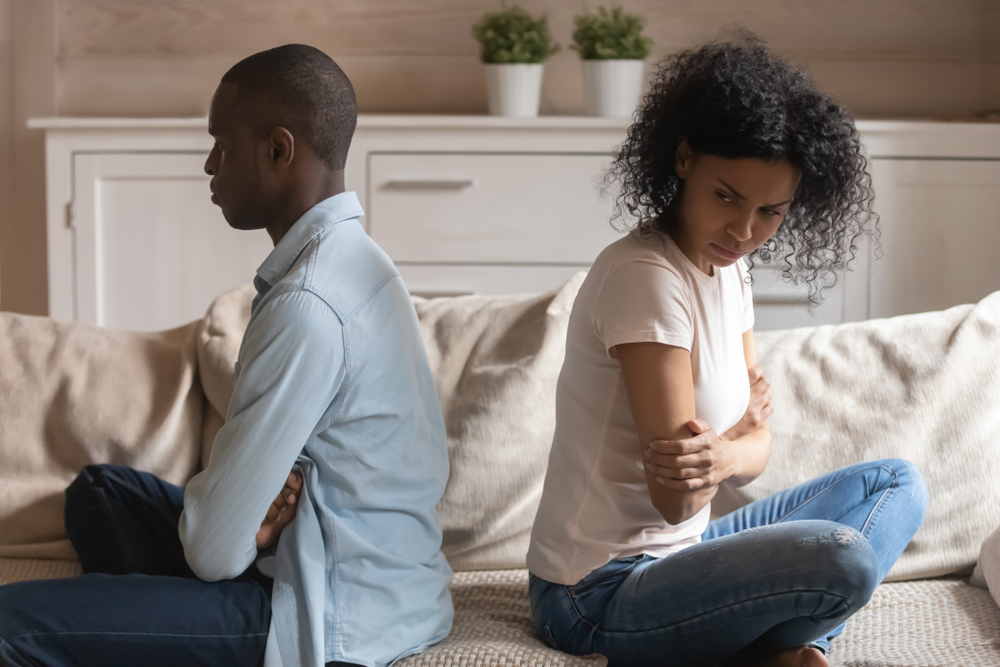A partner who won’t apologize leaves wounds that fester. Their refusal to acknowledge harm creates a toxic dynamic where your pain gets dismissed and their behavior goes unchecked. While you can’t force someone to develop emotional maturity, you can protect yourself from the damage their silence creates. Understanding how to navigate this painful pattern determines whether your relationship survives – and whether you thrive regardless.
Why apologies matter more than words
Genuine apologies do more than admit fault – they validate your experience and demonstrate that your feelings matter. When partners refuse to apologize, they communicate that protecting their ego outweighs respecting your pain. This creates cascading damage to trust, intimacy and connection.
The impact of withheld apologies:
- Your pain feels dismissed and minimized
- Resentment builds with each unresolved incident
- Communication breaks down from accumulated hurt
- Emotional distance replaces intimacy
- Trust erodes when accountability vanishes
Understanding that refusal to apologize often stems from deep insecurity or learned behaviors doesn’t excuse it. Some view apologies as weakness, others fear vulnerability. But their inability to apologize becomes your burden to carry.
Recognizing deflection and fake apologies
Partners who avoid accountability have mastered the art of non-apology. They’ll twist conversations, blame-shift and gaslight rather than simply say they’re sorry. Recognizing these tactics protects you from questioning your own reality.
Common avoidance tactics:
- “I’m sorry you feel that way” – dismisses without accountability
- “You’re too sensitive” – makes their behavior your problem
- Subject changes when you express hurt
- Counter-attacking with your past mistakes
- Silent treatment instead of discussion
These responses reveal someone more committed to being right than being loving. Each deflection deepens the original wound while adding layers of frustration and confusion.
Setting boundaries without begging for respect
You cannot make someone care about your feelings, but you can control how you respond to their indifference. Setting emotional boundaries protects your self-worth when your partner won’t.
Essential boundaries include:
- Stating your hurt clearly without defending its validity
- Refusing to minimize your feelings to keep peace
- Taking space when conversations become circular
- Seeking support outside the relationship
- Not accepting blame for their behavior
Say something like: “When you refuse to acknowledge how your actions hurt me, it damages our connection. I need time to process this alone.” Then follow through. Your feelings don’t require their validation to be real.
When silence becomes emotional manipulation
Persistent refusal to apologize often masks deeper control issues. Partners who never apologize create relationships where they’re never wrong, leaving you constantly questioning yourself. This dynamic resembles emotional abuse more than love.
Warning signs of manipulation:
- You always apologize first to end conflicts
- Your concerns get turned into attacks on them
- They punish you with coldness for expressing hurt
- You feel crazy for having normal emotional responses
- The relationship feels like walking on eggshells
If you recognize these patterns, the problem extends beyond missing apologies. You’re dealing with someone who uses emotional withholding as a weapon.
Protecting yourself while deciding your future
Living with an unapologetic partner requires intentional self-care to prevent their behavior from eroding your self-worth. This isn’t about changing them – it’s about preserving yourself.
Self-preservation strategies:
- Journal to validate your own experiences
- Maintain friendships that affirm your worth
- Seek therapy for objective perspective
- Practice self-compassion when you feel dismissed
- Remember their behavior reflects their limitations
Ask yourself honestly: “If nothing changes, can I live this way for five more years?” Your answer reveals whether hope or habit keeps you there.
Can relationships survive without apologies?
Some relationships limp along without genuine apologies, but they rarely thrive. Partners who can’t apologize usually struggle with other forms of emotional intimacy. However, change remains possible if they’re willing to address underlying issues.
Signs of potential growth:
- Acknowledging the pattern even without perfect apologies
- Showing behavior changes despite verbal struggles
- Agreeing to couples counseling
- Expressing care through actions if not words
- Demonstrating effort to understand your perspective
Without these indicators, you’re waiting for change from someone who sees no problem with their behavior.
Knowing when to walk away
Sometimes the most loving thing you can do – for both of you – is leave. Staying with someone who refuses accountability teaches them that their behavior has no consequences while teaching you that your feelings don’t matter.
Consider leaving when:
- Your mental health suffers from constant invalidation
- You’ve lost yourself trying to earn basic respect
- The relationship feels more like emotional labor than love
- You’re modeling unhealthy dynamics for children
- Hope for change has completely disappeared
Leaving doesn’t mean you failed. It means you’ve grown enough to recognize that you deserve partners who can say two simple words when they hurt you.
Healing from apologies you’ll never receive
The hardest part of loving someone who won’t apologize is accepting that closure must come from within. You may never hear the words you need, but you can still heal.
Steps toward healing:
- Write the apology you wish you’d received
- Forgive yourself for accepting less than you deserved
- Recognize their limitations aren’t your fault
- Celebrate your strength in difficult circumstances
- Build relationships with emotionally available people
Your healing doesn’t depend on their growth. You can find peace without their permission.
Choosing yourself over empty promises
Partners who refuse to apologize ask you to choose between their comfort and your emotional needs. Every time you swallow hurt to avoid conflict, you choose their ego over your wellbeing. This pattern only stops when you stop participating.
Whether you stay or leave, commit to honoring your feelings regardless of their response. Speak your truth even if they won’t acknowledge it. Seek support even if they call you dramatic. Value yourself even if they won’t.
The relationship you have with yourself matters more than any partnership. Don’t let someone who can’t say sorry convince you that your pain doesn’t deserve acknowledgment. You know what you felt. You know what happened. And you know what you deserve – whether they admit it or not.
True love includes accountability. If your partner refuses to provide it, that’s valuable information about their capacity for genuine intimacy. Use that information wisely. Your future self will thank you for choosing emotional safety over empty companionship.












